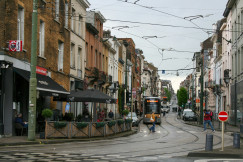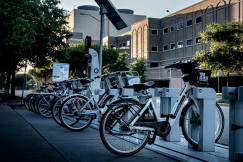Best practices
04 July 2025
Zagreb's hydrogen bus pilot: Paving the way for zero-emission transport
Best practices
04 July 2025
Ecotourism
Urban/city tourism
Best practices, peer learning and networking
+4 more
Login / create an account to be able to react
-
10

Croatia’s hydrogen-powered bus trial in Zagreb, recognised by the Green Hydra project as a model of best practice, demonstrated the viability of low-emission public transport and laid the foundation for deploying 150 hydrogen buses across the region.
Croatian Hydrocarbon Agency
Topics
Croatia
Industry Associations and Chambers of Commerce
Local Authorities
Media / Journalist Organisations
National authorities
NGOs / Non-profits
Regional Authorities
-
Specific types of tourism
-
-
Ecotourism
-
Urban/city tourism
-
-
Transition Pathway Strategic Areas
-
-
Best practices, peer learning and networking
-
R&I on climate-friendly tourism
-
Sustainable mobility
-
-
Business activities
-
-
Other tourism transportation activities
-
Road passenger transport
-
Share
The Green Hydra project, under the Interreg Europe programme, has identified Croatia’s pilot of a hydrogen-powered bus in public urban transport as a notable example of good practice.
The City of Zagreb and its public transport operator, Zagreb Electric Tram Ltd. (ZET), conducted a one-week trial of a hydrogen-powered bus. The trial aimed to evaluate the feasibility of integrating low-emission vehicles into the city’s public transport system.
This initiative provided Zagreb and ZET with initial operational experience in hydrogen technologies, fostered collaboration among relevant stakeholders, and supported efforts to raise public awareness.
During the trial, the bus operated across five countries, covering a distance of 1,641 km and consuming approximately 125 kg of hydrogen, with an average consumption rate of 7.6 kg per 100 km. Plans are under way to deploy 150 hydrogen buses in the region over the coming years.
Further details on this case—including resource requirements, performance indicators, transferability, and expert commentary—are available in the project publication dated 1 August 2024.
#Green transportation options #Climate-friendly tourism practices #Mobility #Carbon footprint reduction #Public transportation #Low-emission vehicles
Comments (0)
Related content
See also
Sustainable EU Tourism - Key challenges and best practices
- Categories
- Coastal, maritime and inland water tourism Cultural tourism Ecotourism +64 more
VINCI: Advancing low-carbon tourism through innovative vocational training
- Categories
- Coastal, maritime and inland water tourism Cultural tourism Ecotourism +41 more
Tourism Potential of Railway Services 2 completed initiative: enhancing connectivity and visibility
- Categories
- Coastal, maritime and inland water tourism Cultural tourism Ecotourism +17 more






